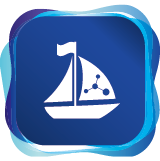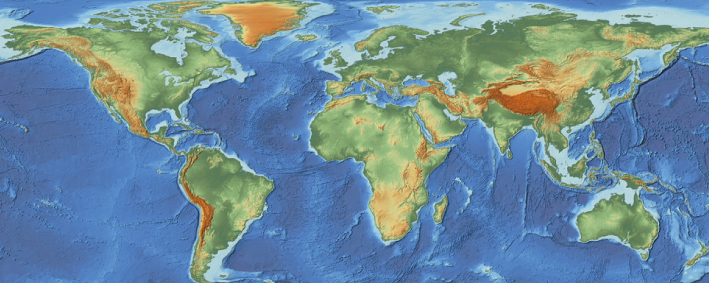 |
CCST9023 Science, Technology and Big Data
|
Course Description
The oceans are the last frontier on earth. They cover 70% of the earth’s surface, and yet we have mapped only 5% of the ocean floors. Given that the oceans are the primary reason that the Earth is habitable, increasing our understanding of this system and its role in the development of civilization, and our interdependence on the oceans’ many resources is critical. In this course we will explore the interactions between humans and the oceans throughout the history of civilization. Humans rely on the oceans for water supply, food, energy, and military and economic activities. We will discuss how historical and recent oceanographic explorations have enlightened our understanding of the earth and contributed to the advancement of technology. The course will also explore the human impacts on the oceans and how such impacts could in turn produce adverse effects on civilization – including climate change, and plastic oceans.
[This will be a compulsory field scheduled during Reading Week and a choice of field trip dates will be provided.]

Learning Outcomes
On completing the course, students will be able to:
- Describe the scientific process and how it relates to oceanography.
- Understand the role of the Ocean in our society and its development.
- Evaluate the human impact on the Ocean.
- Apply knowledge on the human dependence on the oceans to decision making on policies pertaining to their management.
Offer Semester and Day of Teaching
Second semester (Wed)
Study Load
| Activities | Number of hours |
| Lectures | 22 |
| Tutorials | 8 |
| Fieldwork / Visits | 8 |
| Reading / Self-study | 60 |
| Assessment: Essay / Laboratory report writing | 15 |
| Assessment: Debate presentation (incl preparation) | 5 |
| Assessment: Group project (incl preparation) | 25 |
| Total: | 143 |
Assessment: 100% coursework
| Assessment Tasks | Weighting |
| Laboratory | 45 |
| Group project | 30 |
| Mini debate | 15 |
| Participation in classroom activities | 10 |
Required Reading
These readings are subject to change. More appropriate literature may be available later.
- Charnock, H. (1973). H.M.S. Challenger and the development of marine science. The Journal of Navigation, 26(1), 1-12.
- Reves-Sohn, R. (2004). Unique vehicles for a unique environment. Oceanus, 42(2), 25-27.
- Safina, C. (1995). The world’s imperiled fish. Scientific American, 273(5), 46-53.
- Viviano, F. (2005). China’s Great Armada. National Geographic, 208(1), 28-53.
Course Co-ordinator and Teacher(s)
| Course Co-ordinator | Contact |
| Dr C.A. Not Department of Earth Sciences, Faculty of Science |
Tel: 3917 7831 Email: cnot@hku.hk |
| Teacher(s) | Contact |
| Dr C.A. Not Department of Earth Sciences, Faculty of Science |
Tel: 3917 7831 Email: cnot@hku.hk |

